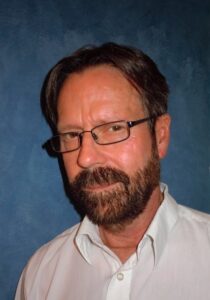- office@fepsac.com
- Grasmarkt 105/39 (c/o EFPA) Agora Galerij B-1000 Brussels
FEPSAC Webinar: Supervision in Applied Sport Psychology (Mark B. Andersen)

In the realm of applied sport psychology, supervision holds a vital role in ensuring adherence to ethical standards, fostering professional growth, and delivering high-quality client care. Within FEPSAC, we view supervision as an ongoing process throughout one’s career, making it a requirement not only for initial certification but also for recertification of FEPSAC certified Specialists in Applied Sport Psychology. With this in mind, we are pleased to offer you an interview featuring a distinguished author and practitioner.
During this session, we aim to delve into various aspects of supervision: its definition, significance, benefits for all involved parties, the procedural framework, avenues for finding suitable supervisors, and the desirable qualities or attributes to seek in a supervisor. The interview will span 30 minutes, followed by a 15-minute Q&A segment, allowing attendees to pose additional inquiries for further clarity and insight.
MARK B. ANDERSEN
Mark retired (from academia) about nine years ago, but he is still an adjunct professor of psychology in both the School of Health and Welfare at Halmstad University in Sweden and the Institute for Social Neuroscience in Melbourne, Australia where he supervises within their Master and Doctor of Psychology (exercise, and clinical) programs.
His present areas of interest and practice include the psychology of injury and rehabilitation the training and supervision of graduate students and professionals interpersonal mindfulness Buddhist psychology psychodynamic issues in sport psychology service, and neuroscience applications in psychotherapy.
His most recent books are Being Mindful in Sport and Exercise Psychology Pathways for Practitioners and Students (Zizzi Andersen, 2017); The Athlete Apperception Technique Manual and Materials for Sport and Clinical Psychologists (Andersen, Marchant, 2017); and the Amazon/Kindle eBook Doing Sport Psychology 21 st Anniversary Edition with Original Authors’ Reflections 2021.
He currently works as a clinical psychologist in a private group practice in Hobart, Tasmania, Australia, and he supervises psychologists in several countries around the world over platforms such as Skype and Zoom.
Some of the institutions he values most are the restaurants where he lives, with his partner Jeffrey, in Hobart’s historic district, Battery Point (the second oldest colonial settlement in Australia).
